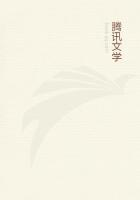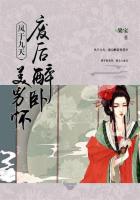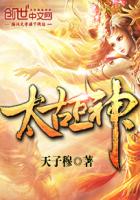The "Hymn to Aphrodite" is not the least remarkable, from a literary point of view, of the whole collection, exhibiting as it does in a masterly manner a divine being as the unwilling victim of an irresistible force. It tells how all creatures, and even the gods themselves, are subject to the will of Aphrodite, saving only Artemis, Athena, and Hestia; how Zeus to humble her pride of power caused her to love a mortal, Anchises; and how the goddess visited the hero upon Mt. Ida. A comparison of this work with the Lay of Demodocus ("Odyssey" viii, 266 ff.), which is superficially similar, will show how far superior is the former in which the goddess is but a victim to forces stronger than herself. The lines (247-255) in which Aphrodite tells of her humiliation and grief are specially noteworthy.
There are only general indications of date. The influence of Hesiod is clear, and the hymn has almost certainly been used by the author of the "Hymn to Demeter", so that the date must lie between these two periods, and the seventh century seems to be the latest date possible.
The "Hymn to Dionysus" relates how the god was seized by pirates and how with many manifestations of power he avenged himself on them by turning them into dolphins. The date is widely disputed, for while Ludwich believes it to be a work of the fourth or third century, Allen and Sikes consider a sixth or seventh century date to be possible. The story is figured in a different form on the reliefs from the choragic monument of Lysicrates, now in the British Museum (17).
Very different in character is the "Hymn to Ares", which is Orphic in character. The writer, after lauding the god by detailing his attributes, prays to be delivered from feebleness and weakness of soul, as also from impulses to wanton and brutal violence.
The only other considerable hymn is that to "Pan", which describes how he roams hunting among the mountains and thickets and streams, how he makes music at dusk while returning from the chase, and how he joins in dancing with the nymphs who sing the story of his birth. This, beyond most works of Greek literature, is remarkable for its fresh and spontaneous love of wild natural scenes.
The remaining hymns are mostly of the briefest compass, merely hailing the god to be celebrated and mentioning his chief attributes. The Hymns to "Hermes" (xviii), to the "Dioscuri"(xvii), and to "Demeter" (xiii) are mere abstracts of the longer hymns iv, xxxiii, and ii.
The Epigrams of Homer The "Epigrams of Homer" are derived from the pseudo-Herodotean "Life of Homer", but many of them occur in other documents such as the "Contest of Homer and Hesiod", or are quoted by various ancient authors. These poetic fragments clearly antedate the "Life" itself, which seems to have been so written round them as to supply appropriate occasions for their composition. Epigram iii on Midas of Larissa was otherwise attributed to Cleobulus of Lindus, one of the Seven Sages; the address to Glaucus (xi) is purely Hesiodic; xiii, according to MM. Croiset, is a fragment from a gnomic poem. Epigram xiv is a curious poem attributed on no very obvious grounds to Hesiod by Julius Pollox. In it the poet invokes Athena to protect certain potters and their craft, if they will, according to promise, give him a reward for his song; if they prove false, malignant gnomes are invoked to wreck the kiln and hurt the potters.
The Burlesque Poems To Homer were popularly ascribed certain burlesque poems in which Aristotle ("Poetics" iv) saw the germ of comedy. Most interesting of these, were it extant, would be the "Margites".
The hero of the epic is at once sciolist and simpleton, `knowing many things, but knowing them all badly'. It is unfortunately impossible to trace the plan of the poem, which presumably detailed the adventures of this unheroic character: the metre used was a curious mixture of hexametric and iambic lines. The date of such a work cannot be high: Croiset thinks it may belong to the period of Archilochus (c. 650 B.C.), but it may well be somewhat later.
Another poem, of which we know even less, is the "Cercopes".
These Cercopes (`Monkey-Men') were a pair of malignant dwarfs who went about the world mischief-making. Their punishment by Heracles is represented on one of the earlier metopes from Selinus. It would be idle to speculate as to the date of this work.
Finally there is the "Battle of the Frogs and Mice". Here is told the story of the quarrel which arose between the two tribes, and how they fought, until Zeus sent crabs to break up the battle. It is a parody of the warlike epic, but has little in it that is really comic or of literary merit, except perhaps the list of quaint arms assumed by the warriors. The text of the poem is in a chaotic condition, and there are many interpolations, some of Byzantine date.
Though popularly ascribed to Homer, its real author is said by Suidas to have been Pigres, a Carian, brother of Artemisia, `wife of Mausonis', who distinguished herself at the battle of Salamis.
Suidas is confusing the two Artemisias, but he may be right in attributing the poem to about 480 B.C.
The Contest of Homer and Hesiod This curious work dates in its present form from the lifetime or shortly after the death of Hadrian, but seems to be based in part on an earlier version by the sophist Alcidamas (c. 400 B.C.).
Plutarch ("Conviv. Sept. Sap.", 40) uses an earlier (or at least a shorter) version than that which we possess (18). The extant "Contest", however, has clearly combined with the original document much other ill-digested matter on the life and descent of Homer, probably drawing on the same general sources as does the Herodotean "Life of Homer". Its scope is as follows: 1) the descent (as variously reported) and relative dates of Homer and Hesiod; 2) their poetical contest at Chalcis; 3) the death of Hesiod; 4) the wanderings and fortunes of Homer, with brief notices of the circumstances under which his reputed works were composed, down to the time of his death.

